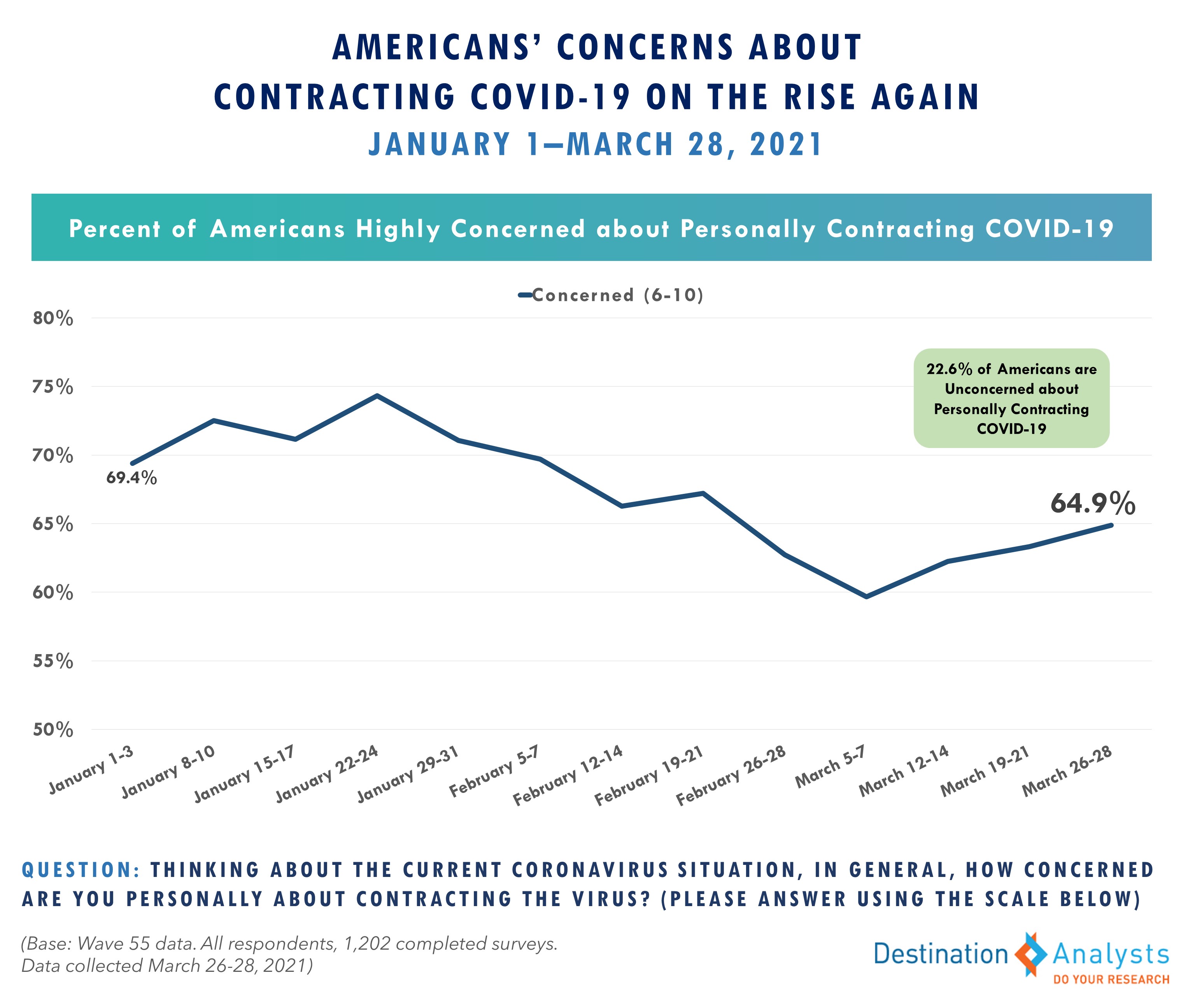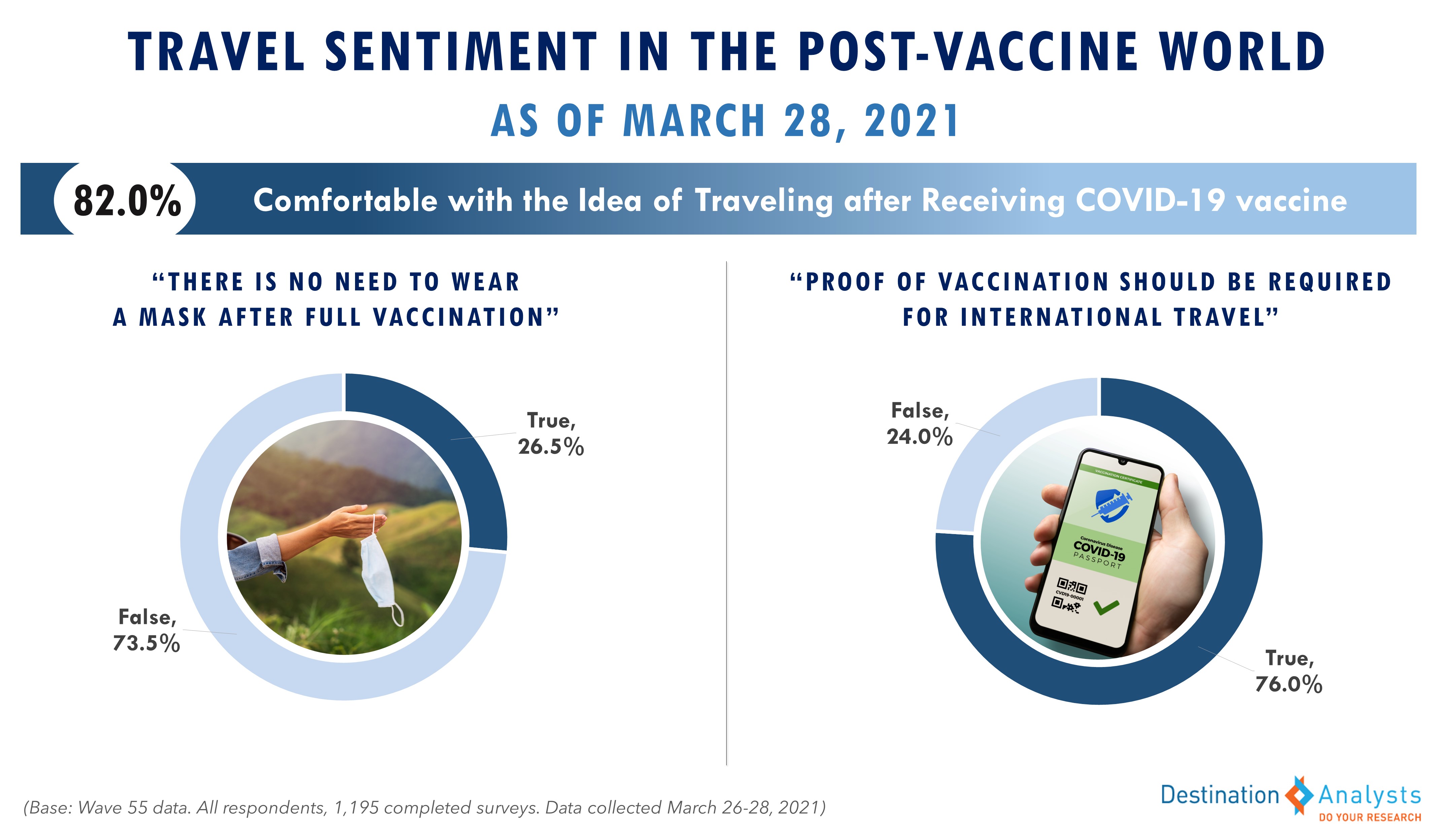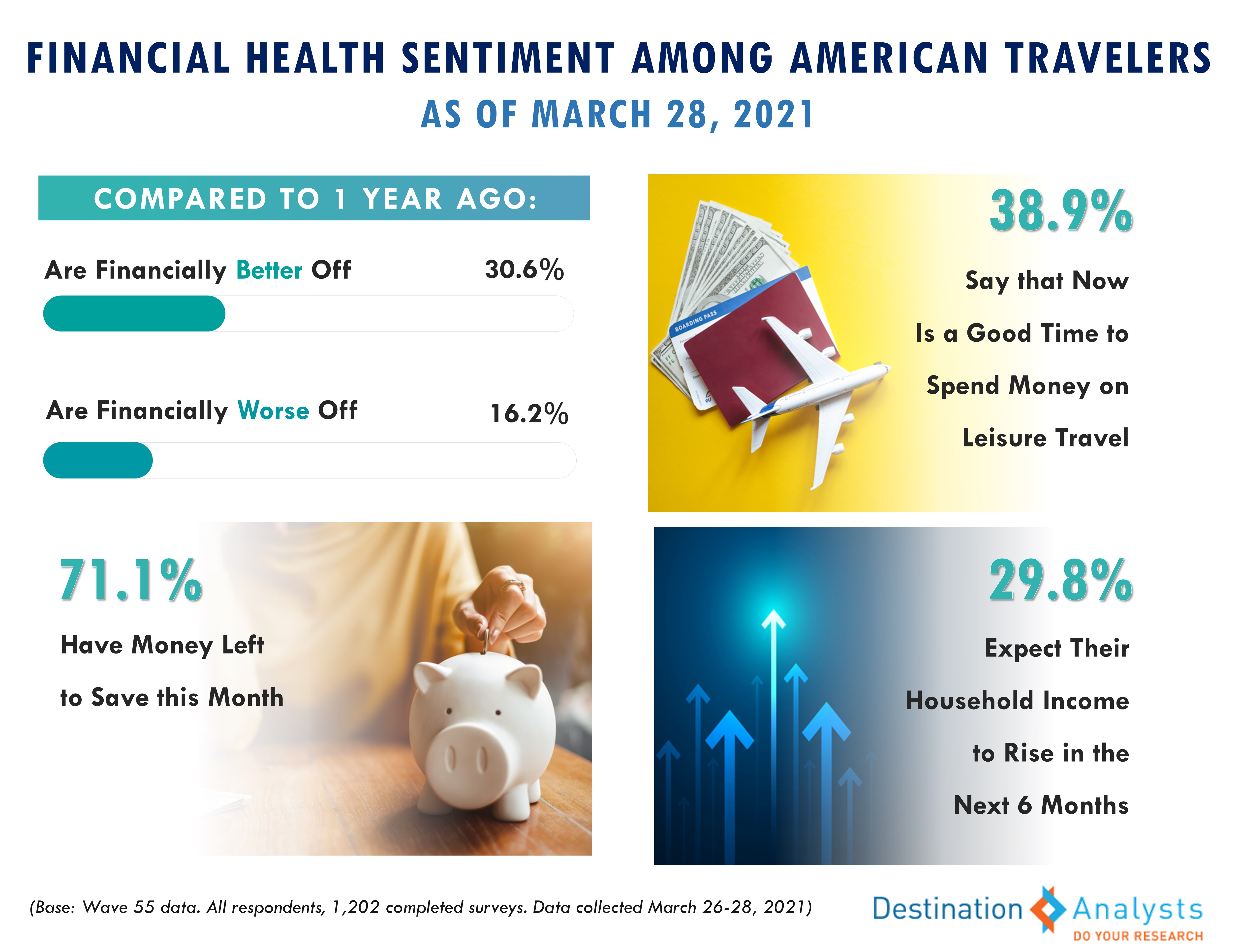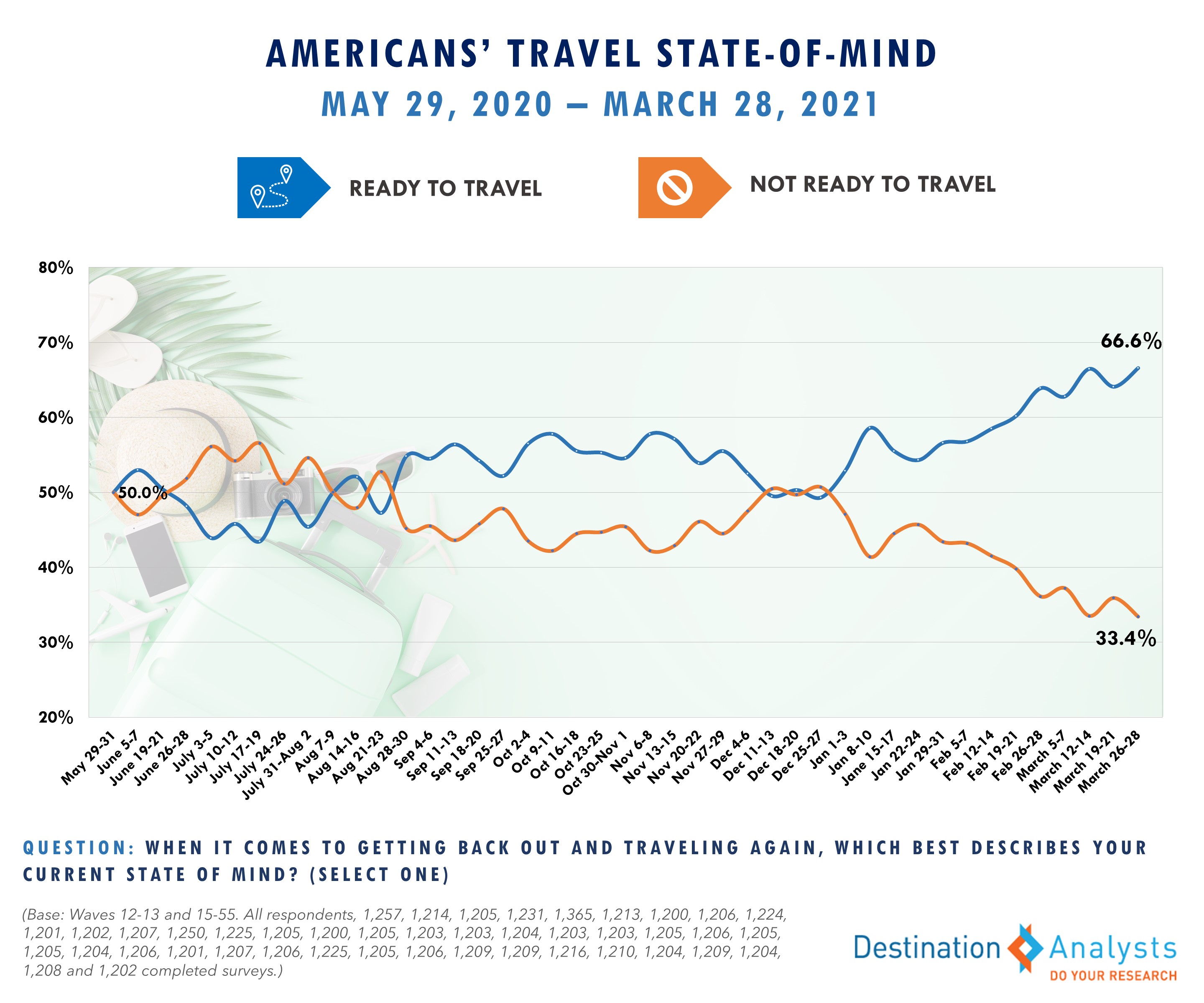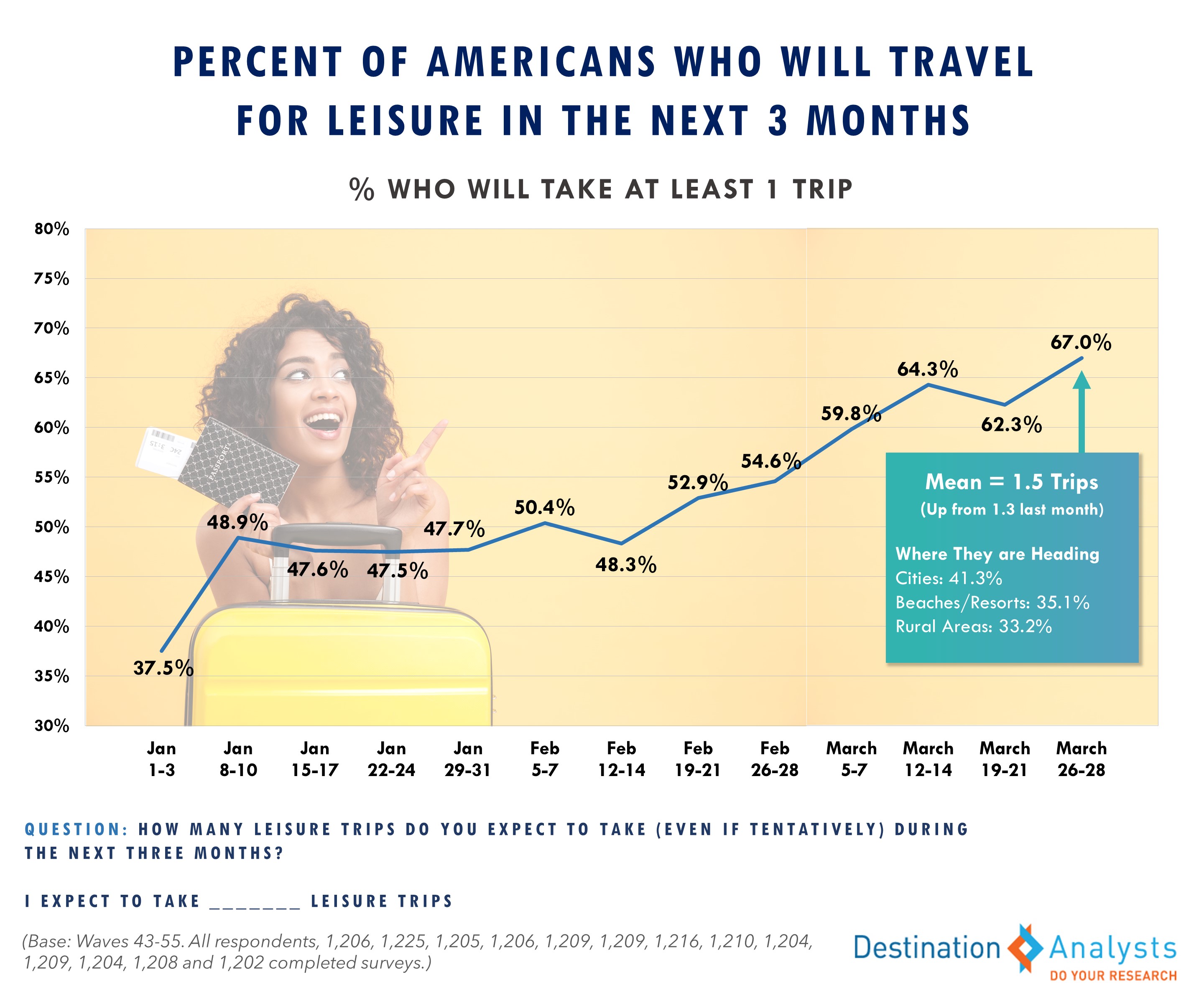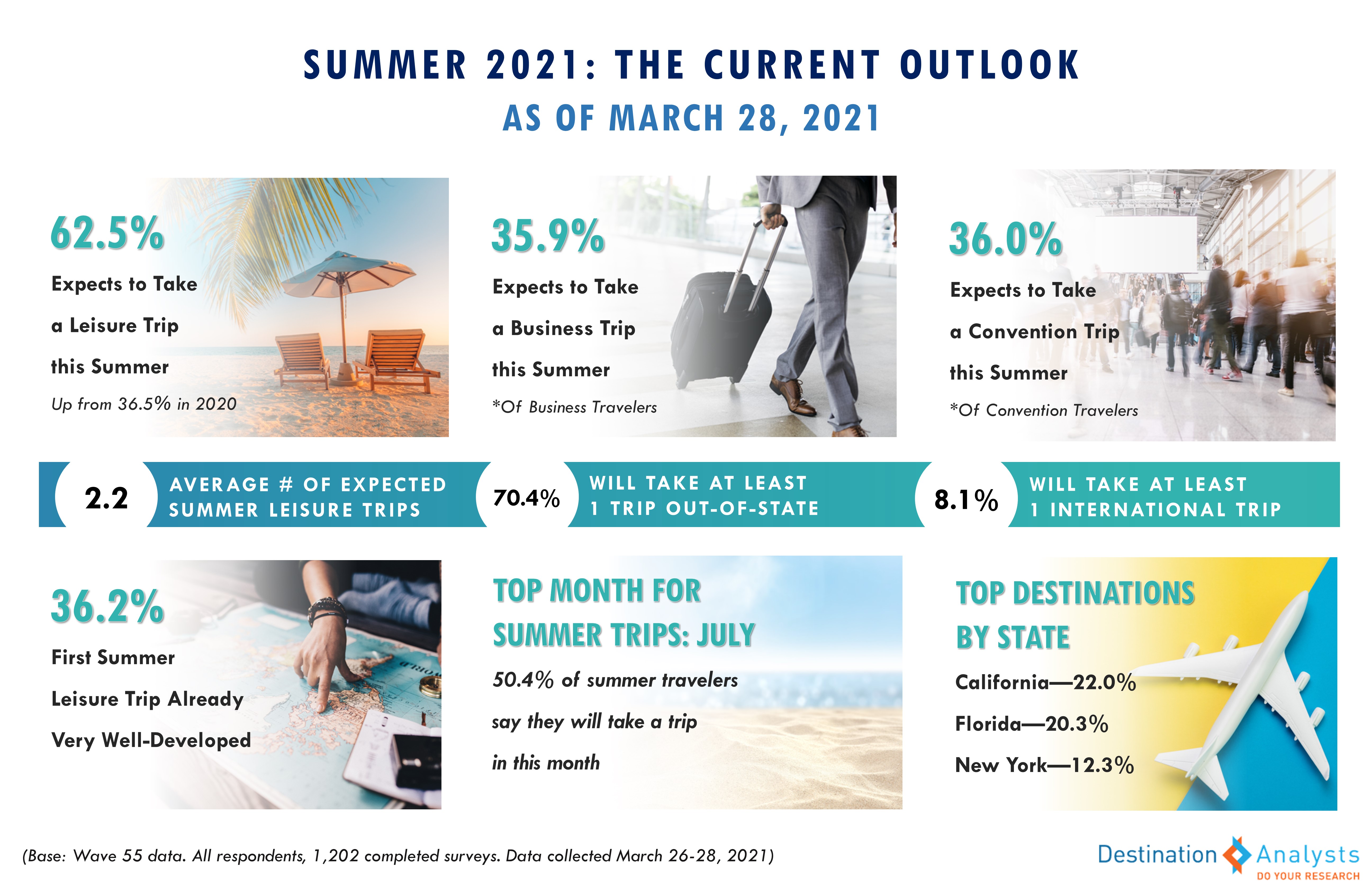Update on American Travel in the Period of Coronavirus—Week of March 29th
Amidst financial optimism and an increasingly ready-to-travel mindset, many American travelers are saying YES to summer vacation this year.

IMPORTANT: These findings are brought to you from our independent research, which is not sponsored, conducted or influenced by any advertising or marketing agency. Every week since March 15th, Destination Analysts has surveyed 1,200+ American travelers about their thoughts, feelings, perceptions and behaviors surrounding travel in the wake of the coronavirus pandemic, and explored a variety of topics. The findings presented below represent data collected March 26th-28th.
Key Findings to Know:
With new coronavirus cases rising again in the U.S., Americans’ concerns about contracting COVID-19 have also increased over the last 3 weeks, after hitting record lows at the beginning of the month. With older Americans prioritized for vaccination and a far greater proportion of them fully vaccinated, this anxiety has greatened in Millennial and Gen X-age travelers and lessened among the Baby Boomers.
Hopefully, the increased anxiety will not have to last for a sustained period as the U.S. races to rollout vaccinations. Two-thirds of American travelers have or will take a COVID-19 vaccine, and the majority continue to believe they will be inoculated by summer. Half of parents with school-age children plan to vaccinate their children when able, as well. As has been demonstrated by their sentiments throughout the pandemic, vaccination has the greatest impact on American travelers’ anticipated behaviors. Fully 82.0% say the idea of traveling is made more comfortable by receiving a COVID-19 vaccine. In looking at feelings about pandemic-safety in the post-vaccine world, American travelers still appear to believe in vigilance to prevent spread. Right now, 73.5% believe you still need to wear a mask after you are vaccinated. In addition, over three-quarters (76.0%) believe that proof of vaccination should be required for international travel.
Despite rising fear about contracting the virus, American travelers’ concerns about the financial impact of the COVID-19 pandemic have remained in a record-low period. Those with high concerns about the national economy stayed below 80% for the fifth straight week (78.8%) and those with strong concerns about their personal finances dropped to 50.1%. In fact, American travelers appear relatively optimistic about their financial future and thus their ability to spend on travel. Fully 3-in-10 American travelers say they are financially better off now compared to a year ago; nearly twice the proportion who say they are worse off (16.2%). A similar number—29.8%—say they expect their income to rise in the next 6 months. In terms of devoting their income to travel, 38.9% say that right now is a good time for them to spend money on their leisure travel and 41.7% expect to spend more on leisure travel in the next 12 months compared to the previous year.
American optimism is even more prevalent in their travel outlook. Over 53% of Americans think the pandemic situation will improve in the U.S. over the next month, and a record 66.6% report being in a ready-to-travel mindset. Nearly two-thirds report being highly open to travel inspiration and 61.4% exhibit strong excitement at the prospect of traveling now.
This increasingly positive sentiment towards travel can be seen in Americans’ current trip plans. Over 71% did some travel dreaming or planning in the last week alone, including a 2021-record 16.2% who booked or made reservations. Two-thirds of American travelers say they have trip plans in the next 3 months—yet another pandemic record. Right now, 42.0% say they are going to travel more in the next year compared to the previous. Urban destinations also continue to show recovery, with a pandemic-record 41.3% of those traveling in the next 3 months saying they will visit cities.
Many American travelers are saying yes to summer vacation. This week, 62.5% report they are traveling for leisure this summer; this is up 26 percentage points from 2020. Summer travelers currently have 2.2 trips planned for the season on average, with July the peak month at 50.4% of these travelers saying they will vacation then. The desire to stay close-to-home appears to have retreated, as 70.4% say they will be traveling out-of-state and 8.1% say they plan to go abroad this summer. California and Florida dominate the states Americans say they are heading to this summer, although just 36.2% say their first summer trip is already very well-developed right now—clearly an opportunity for travel marketers.

